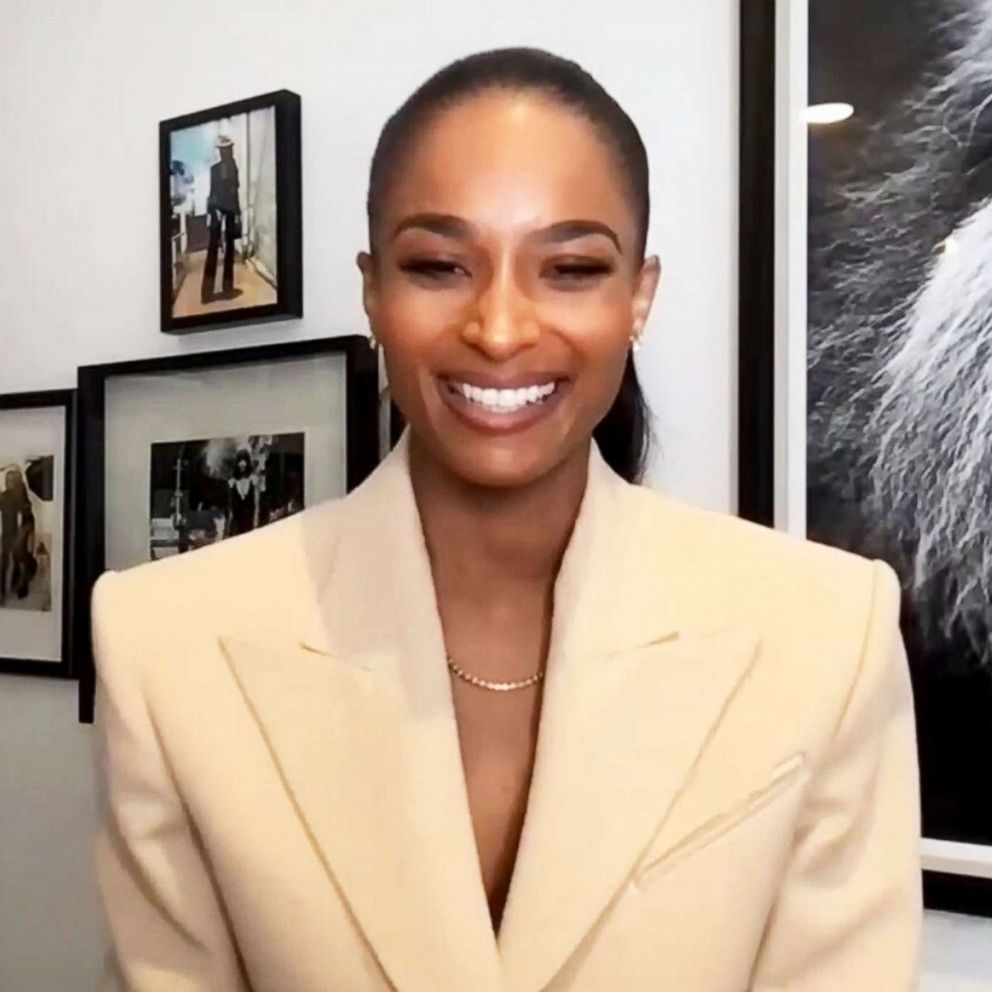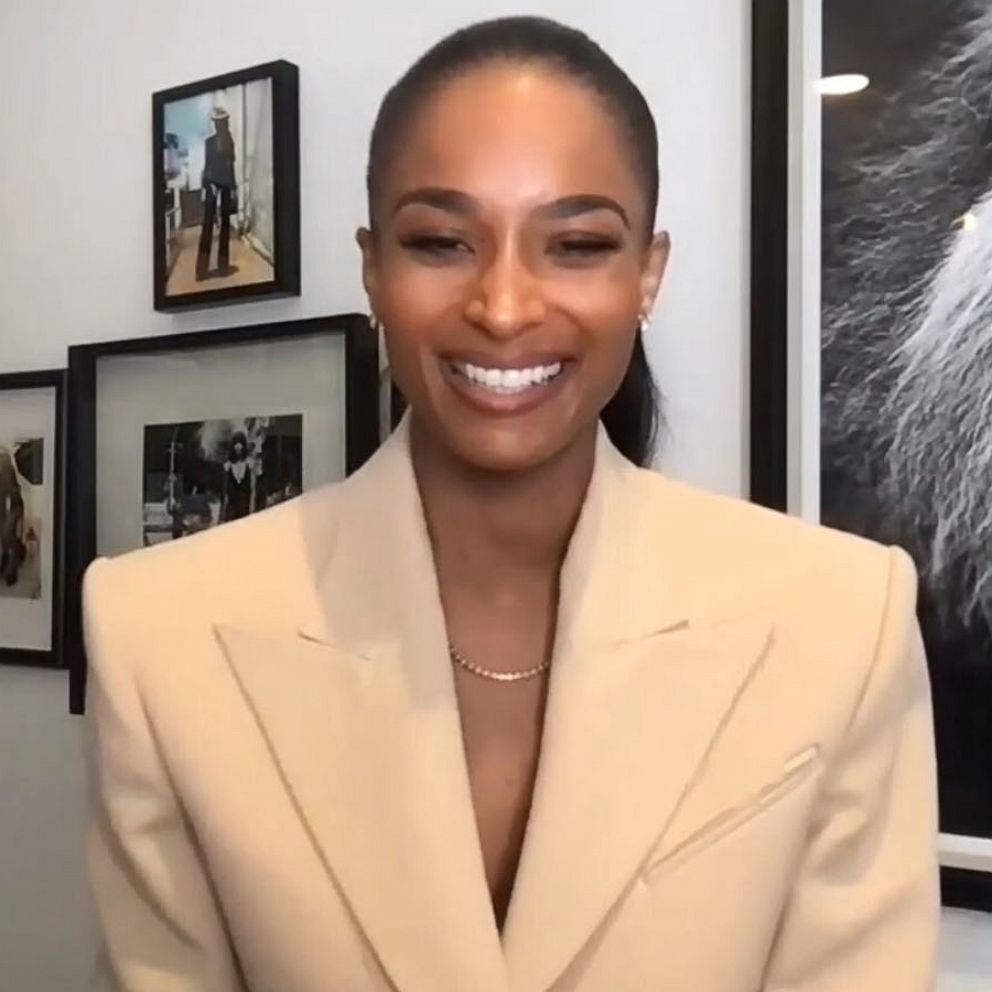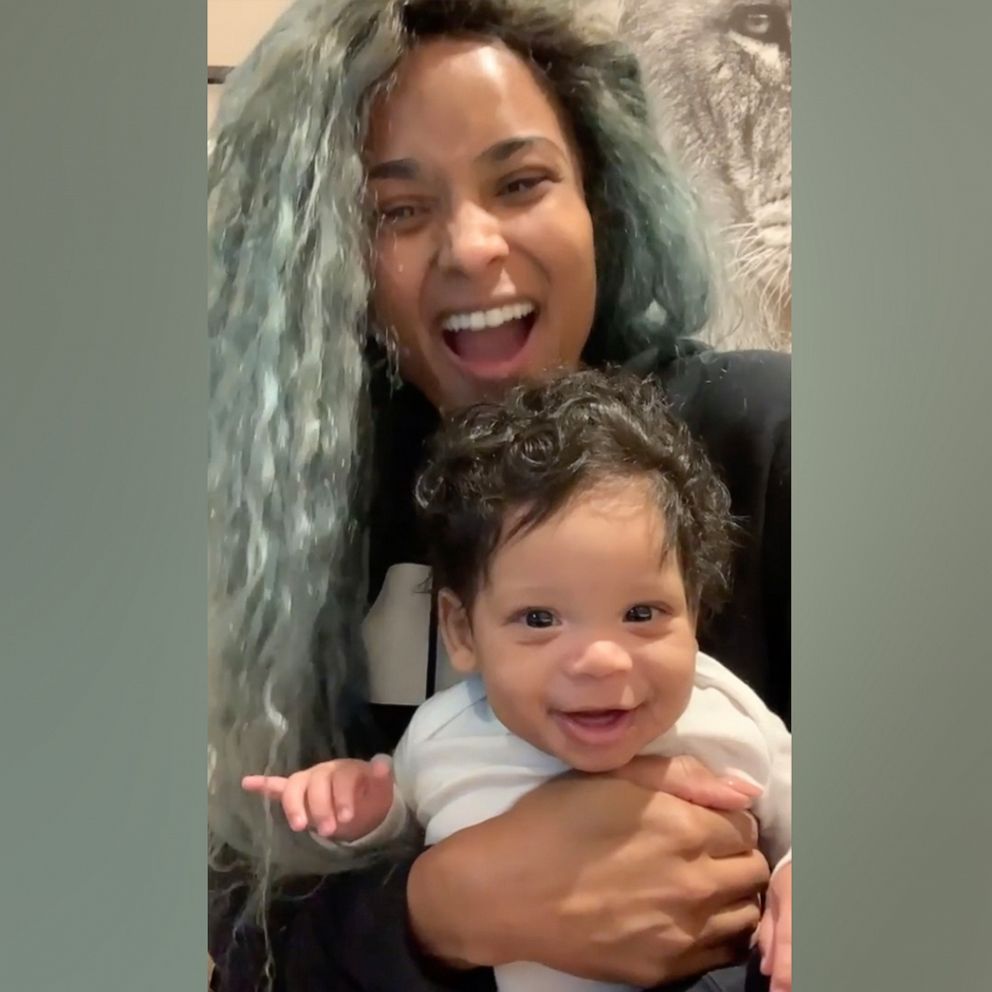Ciara encourages cervical cancer screening after learning about 'eye-opening' racial disparities in the disease
Ciara is part of a new initiative to spread awareness about cervical cancer.
Ciara is using her voice to bring attention to cervical cancer.
The Grammy Award-winning singer, 35, recently joined forces with Black Women’s Health Imperative and Project Health Equality for "Cerving Confidence," an initiative centered on raising awareness about the importance of well-woman exams and educating oneself on the racial disparities in the disease.
In an interview with "Good Morning America," Ciara said she felt it was a "huge opportunity" to help Black women get more education on preventing cervical cancer after learning about the disparities herself.
She said it was "eye-opening" learning that Black women in the U.S. are dying of cervical cancer at twice the rate as white women. The finding comes from a study published in a 2017 journal, "Cancer," that assessed mortality data from 2000 to 2012 from the National Center for Health Statistics.
The research indicated that the corrected mortality rate from cervical cancer for Black women was 10.1 per 100,000 versus 4.7 per 100,000 for white women. The uncorrected mortality rate for Black women was 5.7 per 100,000, while the uncorrected rate for white women was 3.2 per 100,000.
Dr. Jessica Shepherd, an OB/GYN and women's health expert, told "GMA" that many health care disparities can often be attributed to resources available and the "ability for people to get the care that they need."
In order to reduce the disparity in cervical cancer, Shepherd said it’s necessary to have "fundamental education that's going to help people understand why it is so imperative to make sure that they see their doctor annually."
She also emphasized the importance of patients "making sure that they're asking for their Pap test and HPV testing together -- and the follow-up that's necessary too, if they do have an abnormal pap smear."
The importance of screening for cervical cancer
The National Cancer Institute estimates there will be 14,480 new cases of cervical cancer in 2021 and an estimated 4,290 deaths from the disease.
Early detection is instrumental in treating this cancer. Screening tests for cervical cancer include the Pap test and the HPV test. The Centers for Disease Control and Prevention also recommends preventative measures including getting the HPV vaccine, not smoking, using protection during sex and limiting one's number of sexual partners.
Women are advised to start getting Pap tests at age 21 and continue through age 29, according to the CDC. At age 30, women have several testing options, including just a Pap test, just an HPV test or a Pap test and an HPV test together. In 2020, the American Cancer Society (ACS) issued new guidelines, recommending an HPV test alone every 5 years from ages 25 to 65. Many doctors are transitioning to using these guidelines within their practices.
Shepherd encourages women to ask for the Pap test and HPV test together in order for their doctor to have more information in advising on follow-up testing, if needed.
"If someone has a Pap plus HPV testing and we detect precancerous cells, we can have some procedures that are done that are actually able to help treat those cells," she said. "Now, if someone has cervical cancer, and we're in early stages of cervical cancer, there are very small invasive procedures that we can do to actually treat and potentially cure cervical cancer."
Ciara said having her three children, Future, 7, Sienna, 4, and Win, 11 months, helped her to be "way more responsible than ever before" and "super dialed in" when it comes to her health and screenings.
She said she initially wasn’t too keen on attending these screenings, like many other women when approaching their well-woman exams.
"I think for all of us women, when you think about doing that well-woman exam, it's like, ‘Oh Lord!’" she shared. "I don't know what it is -- there's just something psychological -- it’s the simplest thing to do, but it’s the idea of the whole process, I guess."
"So I did go through that phase, and now honestly, it's something I look forward to," she continued. "I like being on top of my stuff, I like knowing everything is good across the board for my total wellness and this is a part of it."
Spreading awareness to change the statistics
Setting an example for her daughter also influenced Ciara to speak out on the importance of screenings.
"One day, my daughter, she may have a daughter, and so I think about all the young girls around the world and just being able to inspire," she said on increasing attention around cervical cancer.
"Ultimately I just want to be able to be here and witness the special moments in my kids’ lives, and so whatever it takes to do that, I'm going to do it," she added.
She hopes using her voice to encourage Black women to get educated about cervical cancer will reduce the disparity in the future.
"It really doesn't have to be the case," she said about Black women in the U.S. dying at a higher rate from the disease. "We're living in a different time ... being able to increase the access and equity for all is huge.
"I hope that we can really work on this together and let's change this narrative," she added. "Let's shift it, it's time."
The singer also has a message for Black women who might be hesitant to prioritize or attend their screenings.
"I want to encourage that sweet, beautiful, powerful, incredible Black woman to go out there and be on top of your stuff," she said.

She went on, "Self-care is the best care, and in this case, by doing your well-woman exam, you are able to really be on top of your stuff and you really can serve some confidence in every aspect when you know yourself more in this way. So don't be afraid, it's really simple."
Added Shepherd: "The more that we take time to acknowledge these inequalities and to focus on the importance of what we can do individually, but also as organizations and also as health care providers to make sure that we're improving women's health, then I think that that's what is going to be the most important thing that all of us can do is to bring awareness to these topics."







